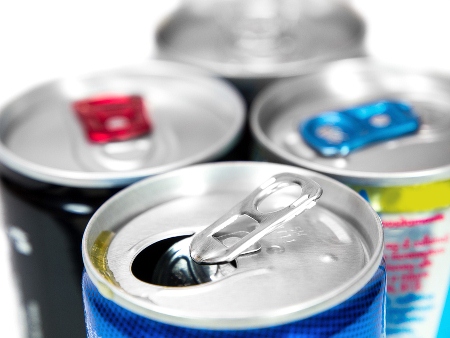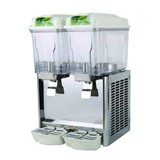"Whether you are a student, sportsperson or someone trying to balance work with other commitments, chances are that you have reached for a functional drink designed to boost alertness, improve digestion or enhance on- the-field performance," said IBISWorld General Manager Daniel Ruthven.
"Increasingly, this drink is less likely to be a traditional coffee or caffeine-rich cola, but rather an energy drink or other functional beverage," continued Ruthven.
According to industry research analysts at IBISWorld, the functional beverage industry is in great shape, with revenue increasing by an estimated 2.5 per cent in 2013-14 to reach $1.1 billion. This is forecast to continue in the five years through 2018-19, with industry revenue growing by 11.4 per cent to reach $1.3 billion.
Functional beverages by retail sales
|
Segment |
2013 revenue ($m) |
2014 revenue ($m) |
2013-14 change (%) |
2019 revenue ($m) |
2014-19 change (%) |
|
Energy drinks |
578 |
593 |
2.6% |
632 |
6.6% |
|
Sports drinks |
433 |
432 |
-0.2% |
458 |
6.0% |
|
Health drinks |
96 |
110 |
14.6% |
174 |
58.2% |
|
Total |
1,107 |
1,135 |
2.5% |
1,264 |
11.4% |
Energy drinks
"Energy drinks carry a more youthful and fresh image than coffee and have been supported by strong advertising campaigns, which has appealed to young consumers," said Ruthven.
Retail sales of energy drinks have shifted dramatically over the past five years from a segment dominated by imported products to one focused on locally produced products at more favourable price points. Locally produced energy drink sales are led by Coca-Cola Amatil's Mother, following a major $10 million relaunch in 2008, and Asahi's Monster. The growth of these two products has meant that Australian made energy drinks now outweigh foreign imports.
Over the past five years, energy drinks have grown within the functional beverage production industry, increasing their share of the category from just over 30 per cent in 2008-09 to 39.6 per cent in 2013-14. Over this period, the sports drinks segment has failed to innovate or significantly change its offerings, causing its share of the industry to decline from almost 58 per cent to 49.4 per cent in 2013-14 despite consistent volumes.
"Australia has been late to the party when it comes to embracing energy drinks. As a result, this segment of the drinks industry has long been dominated by foreign products, until now, with very strong uptake of domestic products by young consumers," added Ruthven.
Energy drinkretail market share
|
Company |
2008-09 (%) |
|
2013-14 (%) |
|
Red Bull |
41 |
|
23 |
|
V |
39 |
|
24 |
|
CCA |
10 |
|
34 |
|
Asahi/Schweppes |
4 |
|
15 |
|
Other |
6 |
|
4 |
Sports drinks
Sports drinks are marketed as having the ability to improve physical performance and aid rehydration through the presence of electrolytes. This product segment is forecast to decline by 0.2 per cent over 2013-14. Despite this minor decline, sports drink revenue is expected to increase by 6.0 per cent in the five years through 2018-19, to reach $458.0 million.
"Strong affiliation with some of our biggest sports events, teams, gyms and athletes means that sports drink revenue is anticipated to substantially increase in the coming years given Australia reputation as a nation of sports fanatics," said Ruthven.
Health drinks
Health drinks are aimed at health-conscious consumers and are produced using a variety of ingredients and manufacturing techniques to enhance their health image. Revenue from this segment is expected to grow by 14.6 per cent in 2013-14. IBISWorld anticipates growth to remain high in the five years through 2018-19, at a massive 58.2 per cent annualised.
"Consumers are increasingly using health-related functional beverages as supplements to aid digestion, decrease hunger and manage weight. Health drinks, such as probiotic drinks and others with antioxidants or herbal ingredients, are expected to become increasingly popular with health-conscious, time-poor professionals," said Ruthven.


